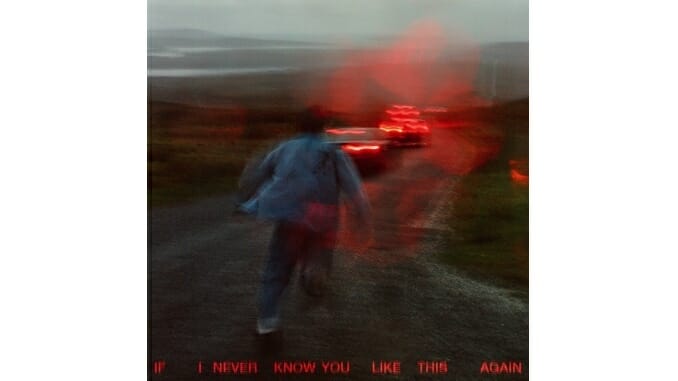SOAK Gets Reckless on If I Never Know You Like This Again
The indie-rock artist expands their sound via the brash and sprawling force of vulnerability

SOAK’s Bridie Monds-Watson has spent their last two albums sifting through melancholy, trying to find nuggets of hope. “I’m lost in some nothingness,” they keened on “Valentine Shmalentine,” backed by weary drums and sympathetic strings, “And I can’t find where the exit is.” 2019’s Grim Town brought out a cheeky, jauntier side of Monds-Watson compared to the drifting anxieties of their debut, but it’s on their third full-length If I Never Know You Like This Again that they finally embrace joy with a sprawling sense of abandon.
Like a Mary Ruefle poem, these songs are spiked with a stream-of-consciousness candor that grapples with the pandemic’s absurd precarity: exploitative landlords, “Live Laugh Love” signs, existential crises. It’s a departure from the spare narratives of their past releases, but one that seems to come naturally for Monds-Watson. “purgatory” switchbacks between disarming earnestness and gallows-humor deflections, knowing that hell doesn’t come after death; it’s already here. “When my life flashes before my eyes, I hope that it’s Academy-winning,” they fantasize over playground “na-na”s and pained guitar twangs. “baby, you’re full of shit” feels even more acerbic in its attempt to find connection, like a corroded knife: “Usually, I’m a T-shirt cannon full of compliments.” Monds-Watson has given voice to anxieties about society’s decaying sincerity before, but their list of grievances—dime-a-dozen podcasts and faux-environmentalism, to name a few—makes that feeling of emotional distance seem overwhelming.
-

-

-

-

-

-

-

-

-

-

-

-

-

-

-

-

-

-

-

-

-

-

-

-

-

-

-

-

-

-

-

-

-

-

-

-

-

-

-

-








































